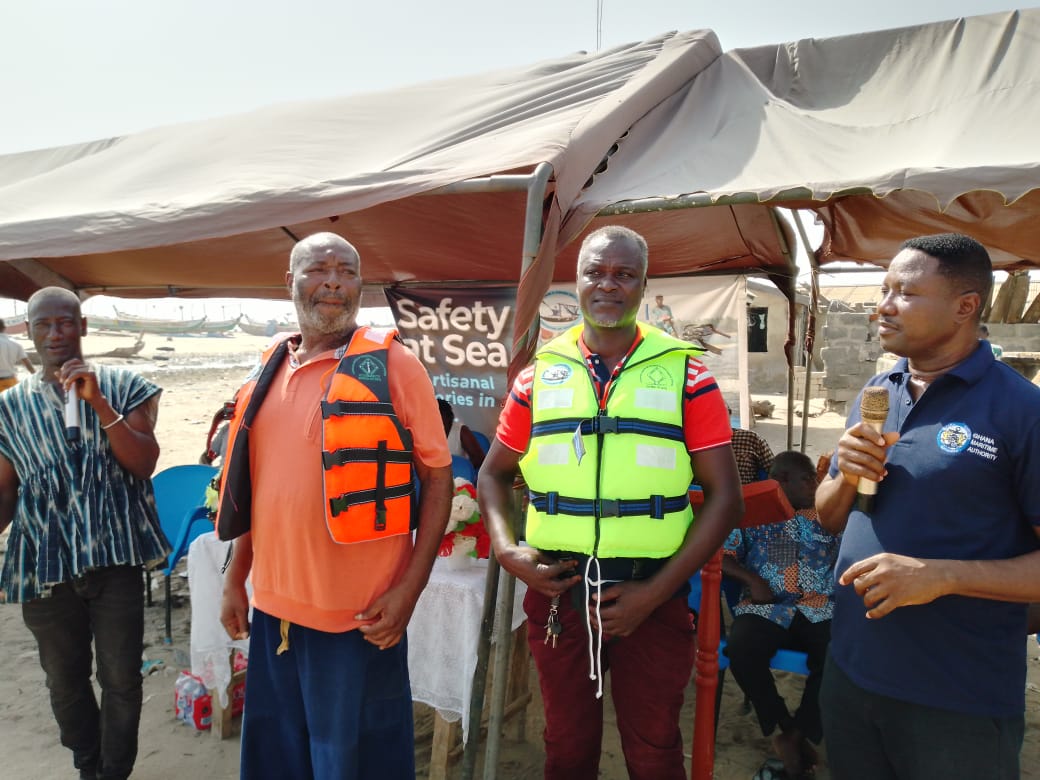
Fisheries are important for nutrition and food security, livelihoods support, foreign exchange earnings, employment, income generation and poverty reduction.
However, instead of growing and contributing substantially to national development, Ghana's national fisheries statistics indicate that marine fish production, for example, has generally been on the decline for the past two decades.
In January 2013, the Ghana Statistical? Service declared that the contribution of fisheries to Ghana's Gross Domestic Product (GDP) had declined and that the fisheries sub-sector was one of the worst performers in the year 2012, as far as the economy of the country was concerned.
Many reasons account for the decline in fisheries in Ghana such as the use of unsustainable fishing methods such as light and chemical/dynamite fishing, use of destructive fishing gears like monofilament nets, increased fishing effort due to increase in number of fishing vessels, increased number and size of fishing gears, use of ice at sea resulting in prolonged fishing trips and weak compliance and enforcement of the Fisheries Law and Regulations to mention a few.
Like any other living thing, fish are adapted to conducive habitats which, when altered or disturbed by the activities of fishing, prevents them from feeding, growing, spawning and multiplying. In other words, there is the need to create protected areas as a fisheries management tool that will act as a safe haven where fish can have their freedom to feed, grow, spawn and multiply before they move to other areas to be harvested. This means that fishing should be done in ways that ensure habitat protection to safeguard their long-term existence.
The main causes of dwindling fish stocks are overfishing and the use of destructive fishing gears. For example, using monofilament fishing nets to catch fish, including juvenile fish.
Employing undersized mesh nets to catch juvenile fish does not allow fish to grow. Then is Light fishing which facilitates fishing throughout the year and aggregates both mature and juvenile fish.
One most important fishing activity that is responsible for fish stock reduction is pair trawling which is able to reach the sea bottom while beach seining is done close to river estuaries and catches juvenile fish that are migrating back into the sea.
Many in Ghana are, therefore, beginning to accept the fact that the fisheries industry in Ghana is facing serious challenges which require reforms in fisheries management.
In an effort to address the challenges and reverse the situation, the Government of Ghana enacted the Fisheries Law (Act 625) in 2002 and promulgated the Fisheries Regulations (Legislative Instrument 1968) in 2010 to give effect to the Fisheries Act.
However, rather than being a useful tool, compliance and enforcement challenges have rendered the law ineffective. There is no enforcement of the laws and regulations as fishermen act according to the canoe owner/net owner's instructions even when it contravenes the law.
It has, therefore, been recommended that voluntary compliance with the law should be encouraged and promoted through education and frequent dialogue on the Law and the Fisheries Regulation, and that the chief fisherman, canoe/net and boat owners as well as crew members and members of the community at large should be the targets or beneficiaries of the messages.
Notwithstanding the call for voluntary compliance, some are of the view that fishermen caught engaged in illegal fishing should be prosecuted.
Meanwhile, the European Union (EU) is assisting Ghana to achieve sustainable fisheries management through the implementation of the EU Regulation on Illegal, Unregulated and Unreported (IUU), strengthening capacity in fisheries governance and the effective monitoring, control and surveillance of the fisheries sector.
Under the project dubbed, Ensuring Greater Environmental Sustainability and Social Equity in Ghana's Fishery Sector, the EU is providing a total of 1.9 million Euros as a grant to support efforts to reduce illegal fishing activities and promote participatory co-management of fisheries, promote food security and improve livelihoods in the sector.
The Environmental Justice Foundation (EJF), a UK-based non-profit organization working to protect the environment and defend human rights, is partnering Hen Mpoano, a non-profit organization based in Ghana, to implement the three-year project.
Under the project, volunteers in pilot communities-cluster within the Greater Accra Region are being trained and equipped to undertake education and sensitization of their community members on the fisheries laws, report and assist in the prosecution of fisheries infractions, conduct lake and land patrols and also to undertake the registration of canoes.
The writer is a freelance journalist and a lawyer.
Hits: 15
Read Full Story
















Facebook
Twitter
Pinterest
Instagram
Google+
YouTube
LinkedIn
RSS